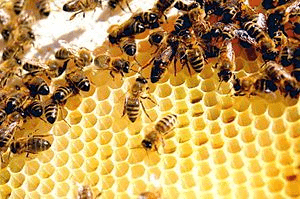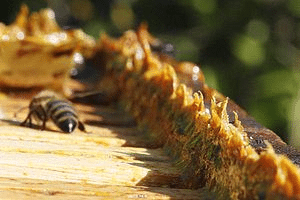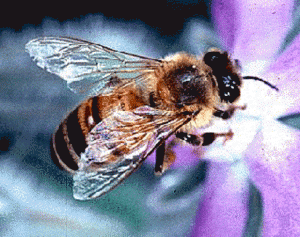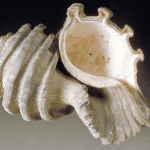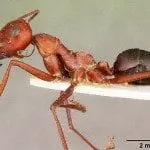Last week, my dad gave me a article on the specialized members of the honey bee hive. Although I’ve studied some about these cool critters, I hadn’t realized just how many different roles the bees have to keep their hive functioning, so I thought it would be fun to pass it on to you.
We all know the basic subdivisions of jobs in a honey bee hive:
•The Queen
•The Workers
•The Drones
But did you know just how many specializations the workers have? Throughout their lives worker bees have special jobs around the hive before they head out to collect the things the colony needs. They start out with housecleaning (sound familiar?), then move on to nursemaid, construction worker, grocer, undertaker, and guard. Only after spending about half their lifetime doing these inside jobs do they begin to venture out as foragers.
The most interesting job to me is the undertaker. I’m glad my family doesn’t need special people just to carry away our dead all the time! But it is a gift of God that these creatures are careful to protect their homes from germs and diseases that they have no way of knowing even exist.
Another help that God has given for times when the bees can’t remove something is Propolis. Pine trees and some other trees put out a sticky ooze called resin that just ‘happens’ to be antimicrobial [kills germs]. Bees and some ants collect this goo to protect themselves from getting sick. The bees mix the resin with their own wax to make the Propolis. Then, when something too heavy gets stuck in their hive (like a mouse that they sting to death), they coat it all over with Propolis and they don’t have to worry about the stink or illness! Reminds me a bit of what oysters do.
Check out some of these Fun Facts about Honey Bees:
•Eating honey can help you [be] smarter! It is the only food to contain ‘pinocembrin’ that is an antioxidant that improves brain function
•Many plants rely on insects like bees in order to be pollinated; which is why they provide nectar to say thanks.
The Bible mentions honey 56 times. Maybe that’s because God knows how good this sweet stuff is for us.
Do you think plants are really smart enough to know they need the bees and invent a drink to “say thanks”? Considering they don’t even have a brain, it seems far more likely they were given the ability to make nectar by a very smart God who made them and the bees!
When I started to research bees today, I plugged “bees + evolution” into my search engine. As I just mentioned, scientists find a number of things “surprising” about bees. They show up too early in the fossil record. They aren’t as dependent on the orchids that need them desperately as they should be. They can’t figure out why the other bees help the queen when it doesn’t help the workers.
Turns out bees were another creature that Darwin was interested in over a hundred years ago. Because he couldn’t find a bunch of fossil bees (we now have some preserved in amber, but they’re still bees!), Darwin made a story showing how they progress from simple to complex using bees that were all alive in the 1800s!
You’d think by now they would have all the answers with that much attention on how bees live.
But I have said unto you, Ye shall inherit their land, and I will give it unto you to possess it, a land that floweth with milk and honey: I am the LORD your God, which have separated you from other people. Leviticus 20:24
He should have fed them also with the finest of the wheat: and with honey out of the rock should I have satisfied thee. Psalm 81:16
For more:
Creation Revolution Articles 4 Kids: Bees: A Honey of a Problem for Evolution
Video: Incredible Creatures That Defy Evolution (See DVD here): Melipona Bee Defies Evolution
Answers in Genesis: Honeybees Navigate with a Map of Polarized Light

